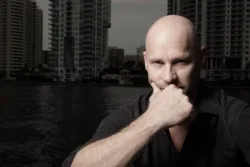Schizophrenia Causes, Symptoms, and Treatment

Schizophrenia is a chronic mental health disorder that affects an individual’s thoughts, perceptions, emotions, and daily functioning. Some of the most recognizable symptoms are hallucinations, delusions, and disorganized thinking and speech.
What Causes Schizophrenia?
Many people wonder what causes schizophrenia, and there are various theories about it. Further research is needed to fully understand the root cause of this illness. However, many potential risk factors have been identified.
Genetics
Scientific research has revealed that, while the general population’s chance of developing schizophrenia is about 1%, the risk increases when one of your close relatives has schizophrenia.
If one parent has the disorder, your risk of developing it increases to 13%. When both of your parents have it, your risk is 40%. Having a sibling with schizophrenia puts you at a 10% risk, and this increases to 50% if that sibling is an identical twin.
However, there have also been cases of schizophrenia where no close relatives had the disorder. Additionally, scientists point to the fact that having an identical twin – someone who shares your DNA – only increases your risk to 50%, not 100%. Therefore, genetics cannot be the only risk factor.
Environmental Factors
Several environmental factors seem to contribute to schizophrenia, including:
- Exposure to viral infections or toxins, especially during fetal development
- Prenatal malnutrition
- Pregnancy and birth complications
- Living in an urban or densely populated area
- Substance abuse, especially at a young age
Neurochemicals
Imbalances in brain chemicals are thought to play a role in schizophrenia. Specifically, research suggests the neurotransmitters dopamine, GABA, and glutamate are involved. Neuroimaging studies have shown differences in brain structure for people with schizophrenia, but further research is needed to determine the significance of these studies.
In summary, schizophrenia is a complex mental health disorder that is likely caused by many different factors.
Symptoms of Schizophrenia
When speaking about schizophrenia symptoms, doctors and mental health professionals often categorize them as positive, negative, and cognitive symptoms.
Positive Symptoms:
- Hallucinations: Hearing, seeing, feeling, tasting, or smelling things that aren’t there.
- Delusions: False beliefs not based in reality. For example, someone with schizophrenia might believe that they are famous, or that a powerful entity is going to harm them.
Negative Symptoms:
- Lack of emotion/emotionally flat; may include a monotone voice or lack of facial expressions and eye contact.
- Lack of interest in daily activities; may neglect personal hygiene or everyday tasks.
- Social withdrawal.
- Inability to experience pleasure.
Cognitive Symptoms:
- Disorganized thinking and speech.
- Problems with memory and organization.
- Inability to complete tasks.
- Disorganized motor behavior such as bizarre posture or excessive movement.
- Anosognosia – a lack of insight or knowledge about their illness. This often causes people suffering from schizophrenia to reject their diagnosis and resist treatment.
The average age of onset for schizophrenia is late teens to early 20s for men and late 20s to early 30s for women.
Subtypes of Schizophrenia
There used to be several different types of schizophrenia, including:
- Paranoid schizophrenia
- Disorganized (hebephrenic) schizophrenia
- Catatonic schizophrenia
- Childhood schizophrenia
- Schizoaffective disorder
However, the Diagnostic and Statistical Manual of Mental Disorders 5th edition (DSM-V) eliminated these subtypes. Now, mental health providers classify all these subtypes as schizophrenia.
Schizophrenia Treatment
Schizophrenia requires lifelong treatment with both medications and therapy. Inpatient treatment may be necessary at times, such as when an individual is experiencing severe symptoms and is unable to care for themselves. However, most of the time, the condition can be managed with outpatient counseling sessions and medications.
Medications for Schizophrenia
The primary medications for schizophrenia treatment are antipsychotic drugs. These can be classified as either first-generation or second-generation. First-generation antipsychotics have a higher risk of serious side effects, such as tardive dyskinesia (a movement disorder). For this reason, second-generation antipsychotic drugs are often the preferred choice. A doctor may also prescribe antidepressants or anti-anxiety drugs.
Therapy for Schizophrenia
Therapy is often recommended for schizophrenia treatment in addition to medications. Some different types of therapy that are helpful include:
- Individual counseling/psychotherapy
- Cognitive behavioral therapy (CBT)
- Cognitive enhancement therapy (CET)
- Family therapy
Additionally, a schizophrenia treatment plan often includes social skills training and vocational rehabilitation to help the individual connect with their community and build a career. Community support groups may also be helpful, including outpatient recovery support groups.
Getting Help for Schizophrenia
It’s important to get help for schizophrenia as soon as possible, since untreated symptoms can worsen and lead to a variety of harmful effects such as:
- Inability to work or attend school
- Inability to perform daily living activities
- Social isolation
- Financial problems and homelessness
- Co-occurring mental health disorders or substance abuse
- Self-harm
- Suicide
If you suspect schizophrenia in yourself or a loved one, the first step is to contact a mental health care provider for a formal diagnosis. The Light Program offers mental health assessments in several treatment locations across southeastern Pennsylvania. Contact our admissions team to schedule an assessment at a location near you.








